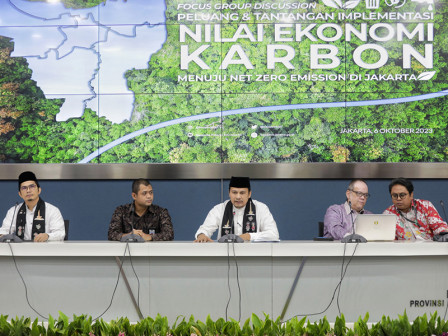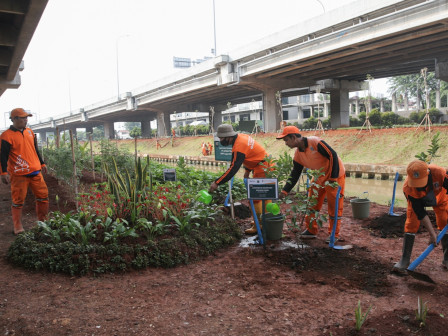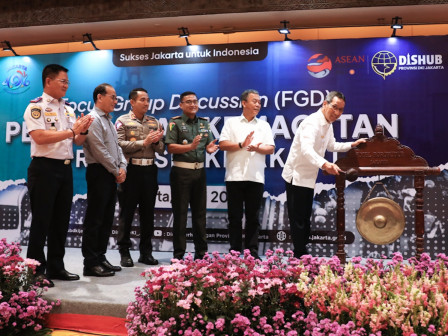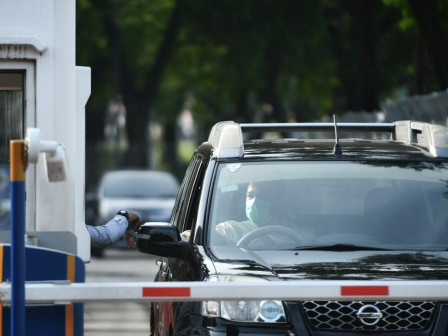City Holds FGD on Implementation of Carbon Economic Value
Reported by Anita Karyati | Translated by Nugroho Adibrata
As many as 100 participants from various agencies participated in the Focus Group Discussion (FGD) event with the agenda of discussing the Opportunities and Challenges of Implementing Carbon Economic Value (NEK) towards Net Zero Emissions at Block G Building, Jakarta City Hall.
Today's FGD will be held in two sessions
City Secretary, Joko Agus Setyono said today's discussion is a new thing for the Jakarta Provincial Government and also part of efforts to prepare for the relocation of the capital city and Jakarta to become a business city.
Jakarta's commitment is contained in Governor Regulation Number 90/2021 on Low Carbon Development Plans for Climate Resilient Regions to reduce the resulting greenhouse gas emissions.
Heru Encourages Jakarta ASNs to Support Environmental PreservationAccording to him, NEK is the value of each unit of gas emissions produced from human activities while realizing the government's obligations to contribute to reducing greenhouse gas emissions.
The regulation of the economic value of carbon could also open up opportunities to receive wider funding and was expected to increase Jakarta's local income (PAD).
"Hopefully, we can get various knowledge and input. Please support to smoothen NEK in Jakarta and become Jakarta's first step in reducing greenhouse gas emissions," he expressed, Friday (10/6).
Jakarta Development Planning Board (Bappeda) Head, Atika Nur Rahmana added the FGD was held as a form of support from the Jakarta Government to the central government, especially in the context of following up on the ratification of the 2015 Paris Agreement in a bid to achieve the target of reducing greenhouse gas emissions.
"Today's FGD will be held in two sessions. The first session contains a plenary session presenting policymakers and practitioners from ministries. The second session presents resource persons in the field of the framework for implementing carbon economic value," she explained.
She went on to say that the government's emission reduction target was 31.89 percent (with its efforts) and 43.2 percent (with international support) by 2030 and achieved the net zero emission target by 2060.
The Jakarta Government was committed to contributing to reducing carbon emission levels as a measure to control the climate crisis.
"Hopefully, it can provide a comprehensive understanding of the importance of low-carbon development," she stated.





